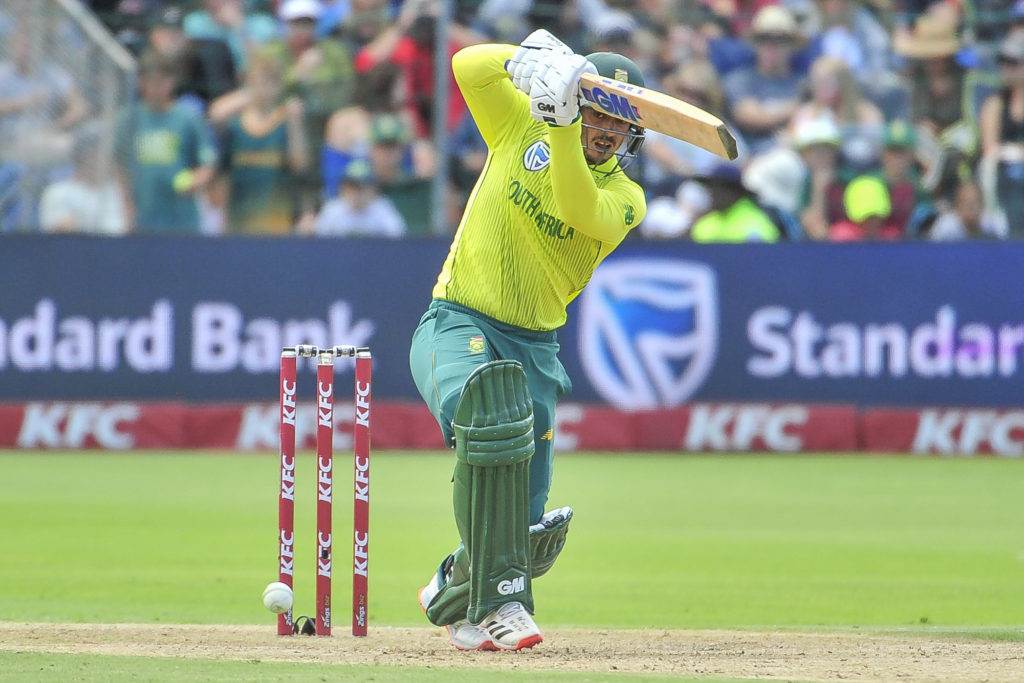The Proteas have 11 matches to arrest their horrific T20 form and prepare their challenge for the T20 World Cup, writes RYAN VREDE.
In the wake of an excellent Test series victory over the West Indies, their first away-series victory since 2017, the Proteas’ focus turns sharply to the T20 World Cup in India starting in October.
Their five-match T20I series starts on Saturday and is followed by a three more against Ireland and India, respectively, before the format’s showpiece tournament kicks off.
These nine matches are critical in their preparation. Finding solutions to deeply rooted issues in that short period will demand detailed planning, astute coaching and personal responsibility from the players (among other qualities) in order to mount a respectable challenge in India.
Some encouragement can be taken from the strength of their performance in the Test series against the West Indies. The formats are incomparable, but there seems to have been a culture and mindset shift, as well as technical and skills improvements, which could spill over into the T20 format.
It has to. The Proteas have an awful T20I record under head coach Mark Boucher, winning just four of 16 matches. That period has been marked by experimentation in selection, much of which has resulted in more questions than answers. While the Test series against the Windies has taken him closer to knowing his best 11, he will be nowhere close to that point with the T20I unit.
The team has changed considerably and consistently from the one that started Boucher’s tenure, with many key positions still undecided. As it stands, it appears that the only certainties in an 11 are Temba Bavuma (captain), Rassie van der Dussen, Quinton de Kock, David Miller and Kagiso Rabada. Tabraiz Shamsi is on the fringe of this group.
Faf du Plessis’ international future remains in doubt. With AB de Villiers’ announcement that he won’t come out of retirement for the tournament, Du Plessis’ skill and experience becomes crucial. However, it looks increasingly likely that he won’t be considered for selection, as the selectors move to reward those who are available for all fixtures ahead of the T20 World Cup (Du Plessis’ T20 commitments with various franchises means he is not).
This leaves the Proteas thin at the top of the order, while their middle order doesn’t inspire confidence. There are a clutch of batsmen in this group who’ve failed to entrench themselves despite numerous opportunities – Heinrich Klaasen (averages 25 after 20 innings), Pite van Biljon (averages 20 after eight innings) and Jon-Jon Smuts (averages 13 after 13 innings) among them.
Dwaine Pretorius has outperformed Andile Phehlukwayo as the team’s premier all-rounder, but transformation targets complicate the former’s selection.
There are encouraging signs from T20 rookies Janneman Malan and Aiden Markram, although only one of whom is likely to make the squad for the tournament. Depending on the balance of the team the selectors opt for, both left-arm spinners George Linde and Bjorn Fortuin may make the squad. Their competency with the bat strengthens their case.
The nature of the defeats have been mixed as well. Of their 12 defeats under Boucher, four have come while chasing a target, and eight defending a score. It is pointless highlighting either the batting or bowling as a primary deficiency, though. The collective needs to improve exponentially, and quickly.
The West Indies series will be the start of that process. If they want to go to India and more than make up the numbers, the Proteas have nine matches to remedy their deficiencies.







